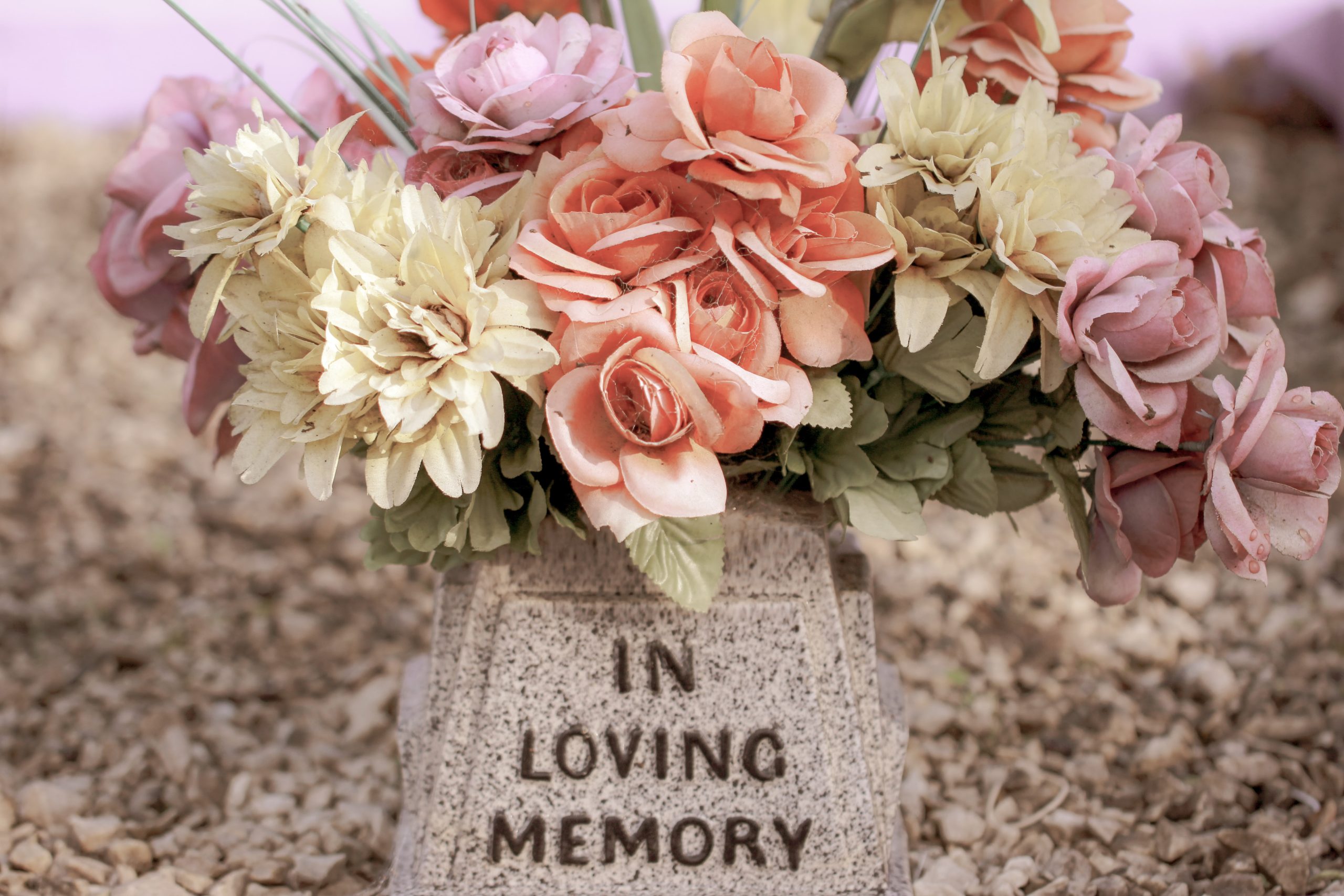Grief.
It is an unavoidable human experience.
In the wake of the September 11th attacks in 2001, Queen Elizabeth II famously stated that “grief is the price we pay for love.”
We grieve many things: the death of a person, the end of a season of life, or a relationship that we yearned for that never came to fruition.
The smell of a childhood home.
A face without wrinkles, or pain-free joints.
Some things like infertility seem to bring waves of grief unending.
Grief often bursts through unexpectedly in the face of unmet expectations.
Grief.
It can come upon a person all at once, or creep up little by little over time. It changes shape and intensity and manifests itself through various other emotions, as well.
Sometimes a person may not even identify that the heaviness they carry is grief. Sometimes grief is all a person can think about.
As a therapist, I have been asked fervently by clients,
How do I get over it? What do I do? Just tell me what to do and I will do it.
It is common for clients to ask for a set of guidelines to overcome emotional or psychological pain; this is not unusual. But with grief in particular, individuals seem to pressure themselves with timelines and ideas of “correctness.”
Many people mistakenly assume that there is a “right way” to grieve. They have heard that there are stages involved, and they arrive to counseling with an agenda to grieve in a way that earns them a straight “A” report card from their therapist.
But just like all of my other clients who expect me to write them a guidebook for their healing journeys, these individuals are often disappointed that there is no perfect formula to grieving.
You see, the “Stages of Grief” are not linear, and each stage is not even always necessary. Instead, the grief journey is deeply personal.
The personal aspect of grief does not mean a person must grieve alone. But it does mean that they will likely have unique responses and experiences, potentially vastly different from even their closest friends and family members.
Most of us have at least heard of the stages of grief, popularized by Elisabeth Kübler-Ross in her 1969 book, On Death and Dying.
And though Kübler-Ross herself admitted that the stages of grief are not necessarily linear, cultural understanding of them has led many of us to believe that they are. [5, 6].
Most professionals have alternatively come to describe this model as the “states of grief” that can overlap, run out of order, or even run amok [6]. Despite common misconceptions, it is not even necessary to “complete” one stage before moving on to the other.
Point being, grief is messy and frustrating and weighty. It is different for everyone, yet shares some common themes. And it can impact a person in countless ways.
The brain’s response to grief
Mary-Frances O’Connor, author of The Grieving Brain: The Surprising Science of How We Learn from Love and Loss, actually differentiates between “grief” and “grieving,” masterfully stating that “grief is the wave that knocks you off your feet and surprises you with both its ferocity and its strangeness.”
She describes “grieving” as “how the feeling of grief changes over time without ever going away” [12].
But where does the brain come in? Without getting too technical about it, let’s just say that professionals agree that grief “rewires the brain” [9, 14, 13).
For example, if a person’s spouse dies, the brain experiences emotional trauma. Every mental and physical activity that was once a second-nature habit now must change. And with it, the brain’s response.
A grieving wife may not need to make a double batch of coffee in the morning anymore. Or maybe she picks up her phone to call her husband when a tire goes flat on the highway, only remembering he died a month ago.
Our brains must adjust to an entire life being removed from us.
When my Mawmaw died earlier this year, I did not feel the finality of her loss until I saw her empty chair in her living room—the place she has greeted me from my entire life. That chair made it feel as if she had simply walked to the kitchen to find something and would wander back in a few minutes. In a way, that experience felt like I was losing her all over again.
When a good friend of mine died by suicide when I was in college, I would sometimes still think I saw him on campus. It would take a few beats before remembering it could not possibly be him. And the grief that had subsided for a while would again come in waves.
Our brains are kind of like a system of country dirt roads. Neurons make pathways over time, and the ruts run deeper and deeper the more we use these same pathways. Rerouting those pathways can sometimes require great effort and discomfort.
Grief, even when expected, is a complete shock to this pathway system.
Grieving, at least as O’Connor describes, is the process of your brain making those changes over time. And while our brains adjust to new routines and patterns of thought (also known as neuroplasticity), we still remember the reality that once was.
Neuroplasticity allows our brains to adjust as needed. One day the grieving wife no longer grabs two coffee mugs, and she becomes used to calling her son for car trouble. But that does not mean she does not remember her husband. She has simply calibrated her neuron paths to no longer attend to the daily activities or thought processes of him being an active part of her life.
Mary-Frances O’Connor beautifully says, “For the brain, your loved one is simultaneously gone and also everlasting” [11].
The body’s response to grief
While the brain is creating new neuron pathways in the grieving process, our bodies may respond in a variety of ways during this transitional time.
Studies of recently-bereaved elderly spouses suggest that these individuals have an almost doubly-higher likelihood of mortality than their peers. Such studies identify that the immune system, cardiovascular health, and mental capacities are greatly impacted in this demographic [2, 3, 4, 14].
There has also been links to sleep disturbances, chronic stress, worsening symptoms of diabetes and other pre-existing conditions, and high levels of stress hormones in people of all ages who are grieving [6, 7, 9, 14].
And of course, chronic grief is directly related to mental concerns such as the increase or onset of depression and/or anxiety.
As mentioned above, grief is a shock to the brain’s neuron system. Our body is made up of many systems that are in constant communication with one another, and each is subsequently affected by drastic traumatic changes such as the loss of a loved one.
For individuals in the grieving process, it is important to not only focus on these physiological symptoms that are present in our bodies, but to also seek professional mental and emotional support as means of providing ourselves the appropriate space to heal in all areas of life.
But really, am I doing it right?
I know, I know. Some of you still have this question. I get it. So let me shout it from the rooftops:
There is no proper or perfect way to grieve.
You may even grieve differently in different seasons of life or for different kinds of relationships or in different kinds of scenarios.
What I do ask of you is that you do not do it alone.
Reach out.
Reach out to ChristianWorks, or to a friend, or to one of the resources below.
Reach out to someone and be honest about how you are doing. The human experience was not meant to be lived out in a vacuum. If it were, grief wouldn’t exist to begin with.
Reach out.
Dallas/ Fort-Worth Resources
*Compiled by GriefWorks Coordinator Nataliya Rutherford
Adult support groups/resources:
– GriefShare – multiple locations throughout the metroplex: www.griefshare.org
– TAPS (Texas Assistance Program for Survivors)– grief support for survivors of military loss: www.taps.org
– Jordan Elizabeth Harris Foundation (suicide post-vention services): https://jordanharrisfoundation.org/postvention
– The Grief & Loss Center of North Texas: https://mygriefandloss.org/resources
– Actively Moving Forward – online support for young adults, app available: www.healgrief.org
– M.E.N.D. (Mommies Enduring Neonatal Death): https://www.mend.org/chapter-dfw-monthly
Children’s support groups/resources:
– ChristianWorks’ GriefWorks program (both FW & Dallas): www.christian-works.org/grief
– The Grief & Loss Center of North Texas: https://mygriefandloss.org/kids
– Journey of Hope (Plano): www.johgriefsupport.org
– The Warm Place (FW): www.thewarmplace.org
– Broken Halos Haven (a retreat for widows & children, Lewisville): www.brokenhaloshaven.org
– Jenny’s Hope (Decatur): www.jennys-hope.org
Grief Resources & Education:
– Coalition to Support Grieving Students (for educators): www.grievingstundents.org
– Dougy Center’s Pathways Program for families who have a member with advanced serious illness: https://www.dougy.org/grief-support-resources/advanced-serious-illness
– National Alliance for Children’s Grief; resources, trainings, & toolkits: www.nacg.org
Stay tuned for part 2 of this series:
That Doesn’t look like grief: Talking to my friends about their loss
References:
1. Clarke, J. (2022, July 26). The five stages of grief. Verywell Mind. Retrieved November 6, 2022, from https://www.verywellmind.com/five-stages-of-grief-4175361
2. Fagundes, C. P., Brown, R. L., Chen, M. A., Murdock, K. W., Saucedo, L., LeRoy, A., Wu, E. L., Garcini, L. M., Shahane, A. D., Baameur, F., & Heijnen, C. (2018). Grief, depressive symptoms, and inflammation in the spousally bereaved. Psychoneuroendocrinology, 100, 190–197. https://doi.org/10.1016/j.psyneuen.2018.10.006
3. Fagundes, C. P., Murdock, K. W., LeRoy, A., Baameur, F., Thayer, J. F., & Heijnen, C. (2018). Spousal bereavement is associated with more pronounced ex vivo cytokine production and lower heart rate variability: Mechanisms underlying cardiovascular risk? Psychoneuroendocrinology, 93, 65–71. https://doi.org/10.1016/j.psyneuen.2018.04.010
4. Finkbeiner, A. (2021, April 22). The Biology of Grief. The New York Times. Retrieved November 10, 2022, from https://www.nytimes.com/2021/04/22/well/what-happens-in-the-body-during-grief.html
5. Haslam, N. (2018, October 21). The five stages of grief don’t come in fixed steps – everyone feels differently. The Conversation. Retrieved November 6, 2022, from https://theconversation.com/the-five-stages-of-grief-dont-come-in-fixed-steps-everyone-feels-differently-96111
6. Holland, J. M., & Neimeyer, R. A. (2010). An examination of stage theory of grief among individuals bereaved by natural and violent causes: A meaning-oriented contribution. OMEGA – Journal of Death and Dying, 61(2), 103–120. https://doi.org/10.2190/om.61.2.b
7. Hopf, D., Eckstein, M., Aguilar‐Raab, C., Warth, M., & Ditzen, B. (2020). Neuroendocrine mechanisms of grief and bereavement: A systematic review and implications for future interventions. Journal of Neuroendocrinology, 32(8). https://doi.org/10.1111/jne.12887
8. How coping with grief can affect your brain. Henry Ford Health. (2018, June 4). Retrieved November 10, 2022, from https://www.henryford.com/blog/2018/06/how-coping-with-grief-can-affect-your-brain
9. McCoy, B. (2021, December 20). How your brain copes with grief, and why it takes time to heal. NPR. Retrieved November 10, 2022, from https://www.npr.org/sections/health-shots/2021/12/20/1056741090/grief-loss-holiday-brain-healing
10. Moberly, N. (2022, January 28). 12 types of grief you may not know about. BetterUp. Retrieved November 6, 2022, from https://www.betterup.com/blog/types-of-grief
11. O’Connor, M.-F. (2022). The Grieving Brain: New discoveries about love, loss, and learning. HarperOne.
12. O’Connor, M.-F. (2022, February 1). Mary-Frances O’Connor recommends readings for the grieving brain. Literary Hub. Retrieved November 5, 2022, from https://lithub.com/mary-frances-oconnor-recommends-readings-for-the-grieving-brain/
13. O’Connor, M.-F. (2019). Grief: A brief history of research on how body, mind, and brain adapt. Psychosomatic Medicine, 81(8), 731–738. https://doi.org/10.1097/psy.0000000000000717
14. Paturel, A. (2020, August 7). The traumatic loss of a loved one is like experiencing a brain injury. Discover Magazine. Retrieved November 5, 2022, from https://www.discovermagazine.com/mind/the-traumatic-loss-of-a-loved-one-is-like-experiencing-a-brain-injury
15. Prigerson, H. G., & Maciejewski, P. K. (2008). Grief and acceptance as opposite sides of the same coin: Setting a research agenda to study peaceful acceptance of loss to study peaceful acceptance of loss. British Journal of Psychiatry, 193(6), 435–437. https://doi.org/10.1192/bjp.bp.108.053157




